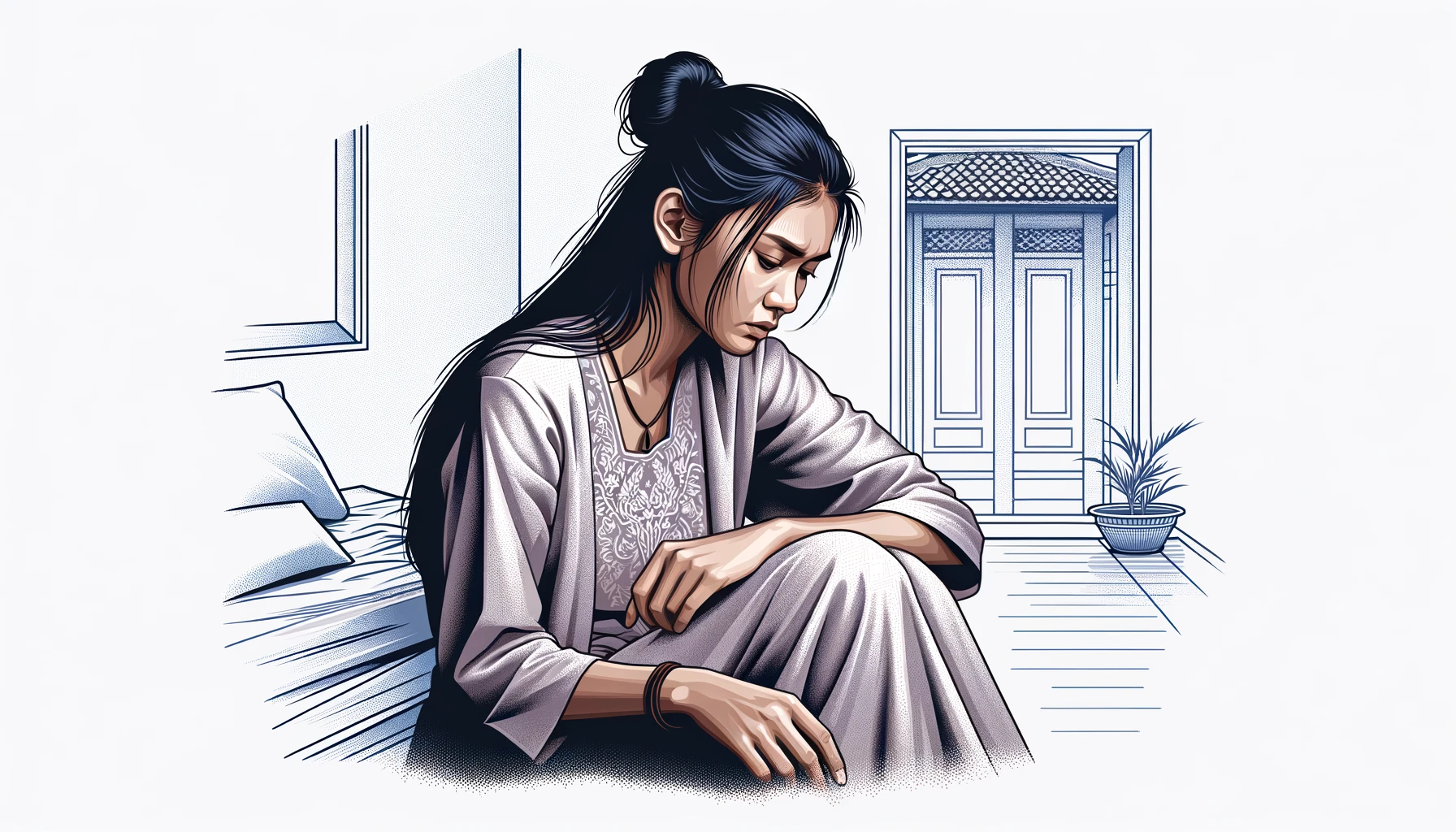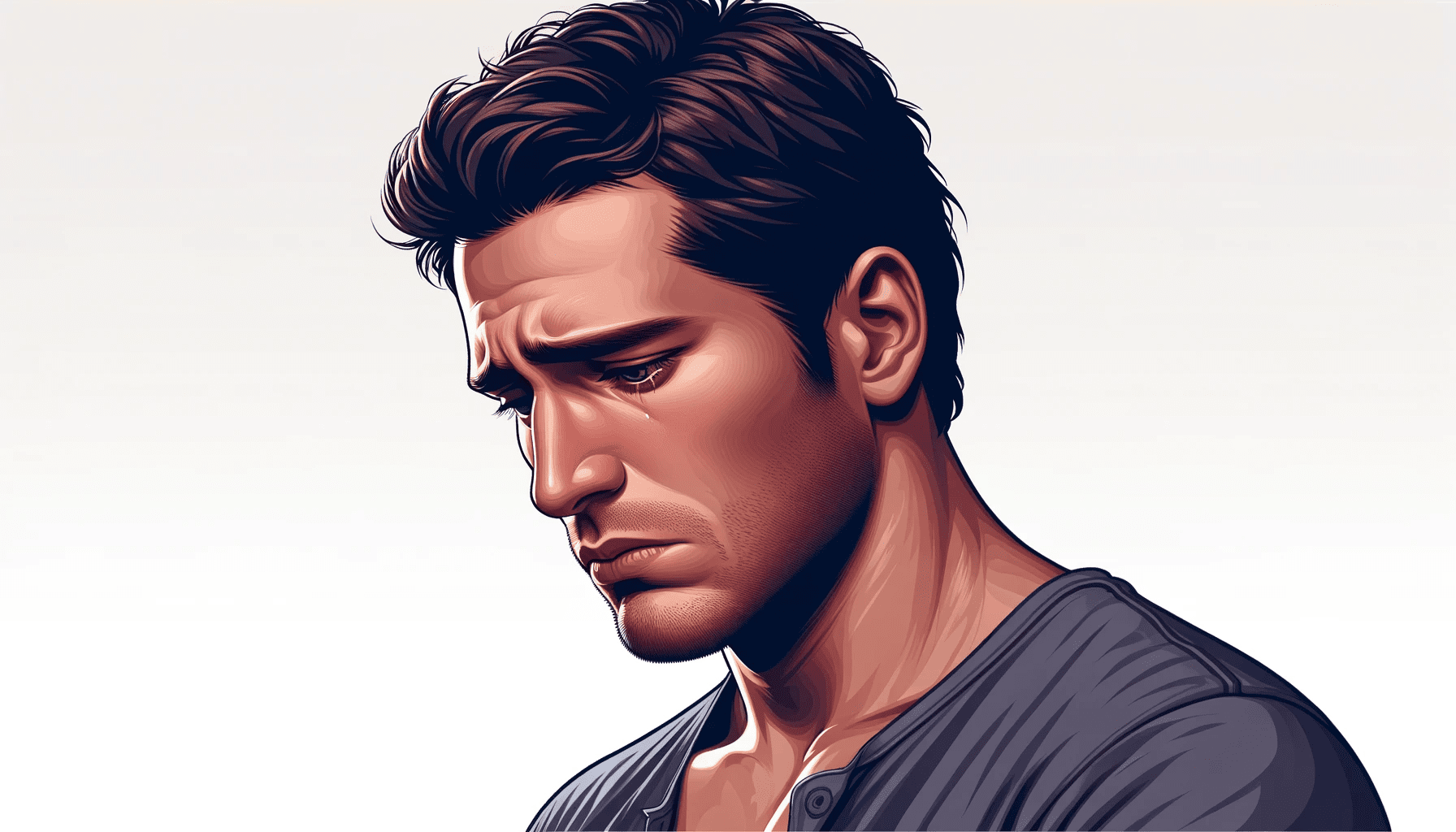Sharing is caring!
Breaking up can be tough, especially if you’re the one who didn’t want it to happen.
In this article, we’ll talk about the different stages you might go through when you’re the “dumpee,” which means your partner ended the relationship.
It’s important to remember that it’s okay to feel sad, confused, and even angry during a breakup.
When you’re the dumpee, it can feel like a rollercoaster of emotions. At first, there might be shock and disbelief, followed by sadness, anger, and even acceptance.
We’ll walk you through these stages so you can better understand what you’re going through and know that you’re not alone in feeling this way.
1. Shock and Denial
When you’re the one being broken up with, the first wave that hits you is often shock and denial.
Your brain has a tricky way of protecting you from immediate pain, leading you to think, “This can’t be happening.” It’s like you’re watching a movie of your own life, but you never signed up for this plot twist.
You might catch yourself expecting them to walk back through the door, text, or call, saying they made a mistake.
As time creeps by, this stage morphs. You’ll replay conversations, looking for hints you missed, convincing yourself that there’s a way to fix everything.
It’s a natural defense mechanism, your psyche’s attempt to cushion the blow. Denial serves as a temporary shelter, letting you adjust to your new reality at your own pace.
However, it’s also a double-edged sword, delaying the inevitable acceptance that must come.
Gradually, the fog of denial starts to lift. This doesn’t happen overnight, and there’s no rush.
Each person’s journey through this phase is unique. It’s about giving yourself grace and space to process the initial shock, allowing the truth to seep in slowly.
Only by facing the reality of the situation can you begin to move forward.
[Interesting: When Do Guys Start to Miss You After a Breakup? 9 Signs]
2. Anger and Bargaining

Following the disbelief, anger often storms in. It’s raw and it’s real.
You might find yourself fuming over things said or unsaid, actions taken or not taken. There’s a burning need to place blame—on them, on yourself, on the universe.
Anything to explain why you’re feeling this way. It’s a tumultuous time when emotions run high, and everything feels personal.
In the thick of anger, bargaining makes an entrance. “If only” becomes a recurring theme in your thoughts. If only you’d been more attentive, if only you’d argued less, if only you’d shown more affection.
You might even try negotiating with a higher power or the universe, promising change in exchange for a return to how things were.
It’s a desperate attempt to regain control over something that feels completely out of your hands.
But here’s the thing: anger and bargaining are necessary evils on the road to healing. They force you to confront your emotions, however messy.
This stage is about acknowledging your pain and allowing yourself to feel it fully. It’s okay to be angry, to question, to make bargains that won’t come to pass.
Through this, you’re working towards finding peace with the breakup, even if it doesn’t feel like it yet.
3. Depression and Withdrawal
Once the adrenaline of anger fades, the reality of loss settles in, often leading to depression and withdrawal.
It’s not just about missing the person but mourning the future you imagined together. Life might seem less colorful, motivation at an all-time low, and solitude a preferred state.
This stage is characterized by deep reflection, where the silence speaks volumes.
During this time, it’s crucial to lean on support systems, whether friends, family, or professionals.
It’s easy to get lost in the depths of your own thoughts, to let the what-ifs consume you.
Yet, it’s also a period ripe for personal growth. It’s when you start to rediscover who you are outside of the relationship, acknowledging the void but also recognizing your worth and resilience.
The journey through depression is not linear. Some days are better, and others feel like a step back. But each day, you’re moving.
Withdrawal eventually lessens as you find reasons to reconnect with the world around you.
This stage teaches you about your inner strength and the importance of self-love. It’s a profound, albeit painful, way to learn that you can endure much more than you ever imagined.
[Also Read: 50 Sad Break Up Texts That Will Make Him Cry]
4. Acceptance and Rebuilding
Reaching acceptance doesn’t mean the pain is gone, but rather that you’ve made peace with it.
You start to see the breakup not as the end of your happiness, but as a chapter in your life that has closed.
There’s a newfound strength in acknowledging that life goes on, and so will you. You begin to envision a future that’s different but equally fulfilling.
Rebuilding is about taking those small, tentative steps forward. Maybe it’s picking up old hobbies you’d forgotten, reaching out to friends you hadn’t seen in a while, or setting new goals for yourself.
It’s in these moments you realize you’re capable of finding joy and meaning in life, independent of your past relationship.
Ultimately, acceptance and rebuilding signify growth. They don’t erase the past but allow you to learn from it and move forward.
Your experiences shape you, but they don’t define you. Embracing this stage is embracing the possibility of new beginnings, armed with the wisdom gained from the pain of letting go.
5. Rediscovery and Self-Realization

After the storm of emotions begins to settle, a phase of rediscovery and self-realization emerges.
It’s a time when you start to peel back the layers of your identity that were intertwined with your partner.
You might find yourself trying new activities, reevaluating your goals, and questioning what truly makes you happy. This is not just about hobbies but also about your values, beliefs, and desires.
Rediscovery is akin to meeting yourself all over again, this time with a fresh perspective shaped by your experiences.
It’s about acknowledging your strengths and weaknesses, your needs, and what you can offer to the world.
This stage brings a sense of empowerment, as you realize that your happiness and fulfillment come from within, not from another person. It’s a liberating realization that opens up a world of possibilities.
Self-realization goes hand in hand with rediscovery. It involves a deep dive into your identity, recognizing the changes you’ve undergone through the breakup process.
You begin to understand your patterns in relationships, what triggers your reactions, and how you can grow as an individual.
This stage is crucial for healing, as it lays the groundwork for healthier relationships in the future, both with yourself and others.
6. New Connections and Experiences
As you become more comfortable in your newfound independence, the door opens to new connections and experiences.
This doesn’t necessarily mean rushing into another romantic relationship.
Instead, it’s about broadening your social circle, meeting people who enrich your life in various ways, and trying things you’ve always wanted to do but never did.
It’s a time for exploration and openness, allowing yourself to be vulnerable in new settings.
Forming new connections can be incredibly healing. It reminds you that the world is full of interesting, kind, and supportive people.
These connections, whether platonic or romantic, help you see the value in different perspectives and experiences.
They contribute to your growth, pushing you out of your comfort zone and encouraging you to become more adaptable and resilient.
FAQs

How long does it take for the dumpee to heal?
The time it takes for a dumpee to heal varies widely from person to person. There’s no fixed timeline or one-size-fits-all answer.
Some might start feeling better in a few weeks, while others may take months or even longer to fully recover.
It’s all about individual experiences, the depth of the relationship, and how you process emotions. Giving yourself patience and kindness throughout the journey is key.
How do you deal with a breakup as a dumpee?
Dealing with a breakup as a dumpee involves acknowledging your feelings, reaching out for support, and giving yourself time to heal.
It’s important to let yourself feel sad, angry, or whatever else comes up. Lean on friends, family, or a counselor for support.
Engaging in activities you love, taking care of your health, and setting small, achievable goals can also help you move forward.
Who suffers more in a breakup, dumper or dumpee?
It’s tough to say who suffers more in a breakup as both the dumper and dumpee experience pain, just in different ways.
The dumpee might feel more shock and rejection initially, while the dumper might struggle with guilt and doubt about their decision.
Both parties go through a grieving process, facing their own set of challenges and emotions.
Is it possible to remain friends after a breakup?
Remaining friends after a breakup is possible, but it often depends on the nature of the breakup and the relationship itself.
It usually requires time apart to heal and move past any romantic feelings. Setting clear boundaries and having honest communication are crucial steps.
However, it’s important to assess whether staying friends is healthy and beneficial for both individuals involved.
Sharing is caring!
